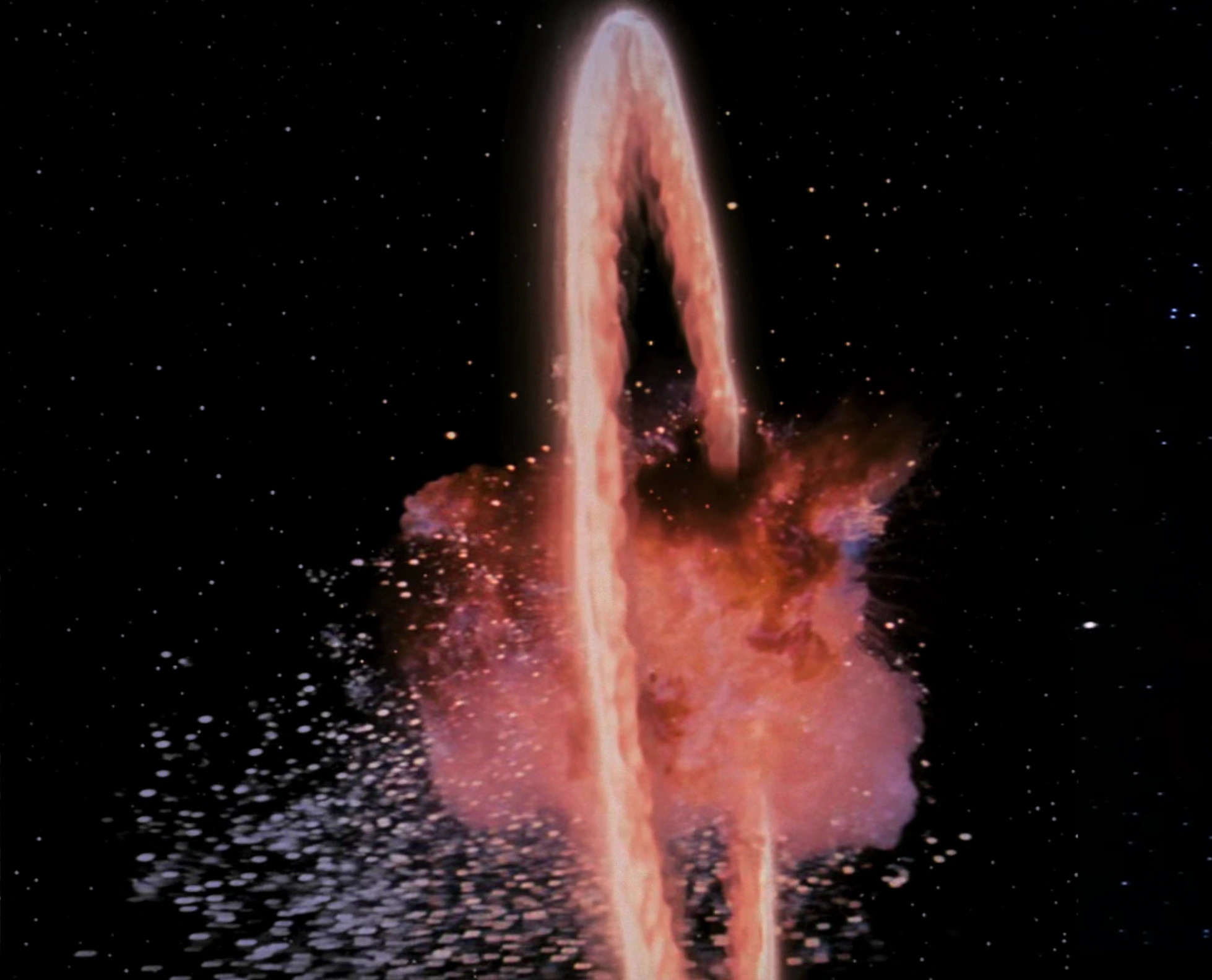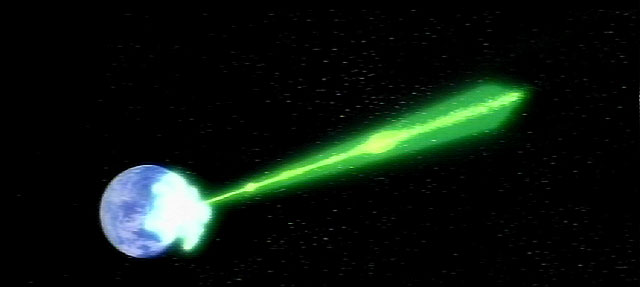I never took chemistry in high school, but I have been trying to learn a bit along with Lucas this semester. Last Tuesday, the lecture was on thermodynamic equilibrium. Sal Khan of Khan Academy helpfully explained to us that if a system – he used the example of a cylinder with a rock holding down the moveable lid – is in equilibrium, its macrostate is well-defined. That means that the pressure, volume, and temperature of the system are constant throughout. Then he asked us to imagine that he vaporized half the rock, which we had a good time imagining.
Or maybe
Anyway. Vaporizing half the rock, he said, would allow the lid of the cylinder to rise, increasing the volume and decreasing the pressure inside the cylinder. Eventually the system would return to a new state of equilibrium with a well-defined macrostate. This new equilibrium, however, would not happen immediately. There would be a period during which the pressure, volume, and temperature inside the cylinder were not constant, when the macrostate was not well defined. In fact, Sal described this state as “all hell breaking loose.”
While I always appreciate Sal’s clear explanations of scientific concepts, this time I also appreciated how his explanation applied to life. A few months ago, we were humming along in a state of equilibrium. Nothing major was broken in the house, everyone seemed to be managing the day-to-day homework/laundry/teleconference/yoga stretching responsibilities, the weather was warming to the point where Eric and I could resume our nightly walks, and the kids started taking ballroom dancing lessons. Then, the metaphorical rock partially vaporized, and we learned we’d be leaving Baltimore and moving back to Cincinnati. While this was certainly not uniformly bad news, it did forecast a change. And change is unsettling.
Many life events are more stressful than a move. In fact, the Holmes-Rahe Stress Scale gives a “change in residence” only 20 points. In comparison, pregnancy is 40 points, major illness is 53, and the death of a spouse is 100. (As an interesting side note, divorce — 73 points — is ranked as more stressful than imprisonment — 63 points. I have no idea what that means, but it intrigued me.) To return to the main point, if the death of a spouse would immediately vaporize the whole rock, our move only knocks out a fifth. Nonetheless, I think the principle applies equally well to any change. There’s a period where life in general just does not seem to be, to use the scientific terminology, “well-defined.”
Chemistry teaches two hopeful things, though. The first is that, eventually, equilibrium will return to the system. If we can embrace that knowledge, it’s very helpful in the chaotic in-between. But for me, the second point is even more helpful. Sal explained that, when the macrostate changes quickly, we can’t plot a smooth course between one state of thermodynamic equilibrium and another. It’s impossible to say anything about the temperature, pressure, and volume in the system as a whole, because they are not uniform and they are constantly changing. But we could choose a single atom or molecule and say useful things about it. What Sal called a “microstate” can be well-defined at any point in time. So, to extrapolate most unscientifically, though my world may be a bit topsy-turvy right now, my soul, my “microstate” can still be stable. Obviously things like eating quinoa instead of jelly beans and taking a walk instead of collapsing in front of the TV can be helpful for one’s microstate. So can the support of friends and family.
To be honest, though, I can only run so many miles before my body reminds me that we are no longer spring chickens around here. And though I build a barricade of kale and chia seeds a mile high, the slings and arrows of life inevitably find their target. Even human love has its limits; we’re dealing with other people in their own chaotic macrostates. There’s really only one guarantee of the health of my soul “though the earth gives way, though the mountains be moved into the heart of the sea, though its waters roar and foam, though the mountains tremble at its swelling.” That guarantee is found at the end of Psalm 46: “Be still, and know that I am God.” That’s the point of equilibrium.

